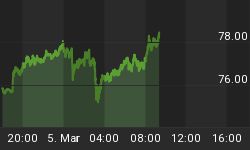A couple days ago Bloomberg reported Polls Indicate Merkel's Coalition Is Likely to Win Election.
CDU/CSU will get 40 percent of votes, coalition partner FDP 6.5 percent, according to a poll conducted by Institut fuer Demoskopie Allensbach on behalf of the Frankfurter Allgemeine Sonntagszeitung newspaper. The total of 46.5 percent compares to a combined 44 percent of the other parties moving into parliament, comprising the SPD that polled 25.5 percent, Greens with 12.5 percent and Die Linke 6 percent.
CDU/CSU will get 41 percent of votes, one percentage point less than a week earlier and FDP 5 percent, one percentage point more, according to an Emnid poll on behalf of the Bild am Sonntag newspaper. The combined 46 percent compares to 45 percent of the other parties moving into parliament, comprising SPD with 26 percent, Greens polling 12 percent and Die Linke 7 percent.
What About AfD?
Neither poll mentioned the anti-euro Alternative für Deutschland party (AfD) as if it would not reach the 5% threshold for parliament.
I asked Reader Bernd from Germany (not Bernd Lucke, AfD party leader) his take on the Bloomberg poll. Bernd responded ...
Hello Mish,
Poll 1 by Allensbach Institut is made on behalf of CDU via Frankfurter Allgemeine - it has been my practice in the past years to disregard any poll coming from them. Allensbach are notoriously CDU friendly and notoriously wrong.
Poll 2 by Emnid on behalf of Bild Zeitung is equally shaky and Bild Zeitung is another CDU-friendly tabloid.
We will see lots of polls coming out of Germany in the next weeks but half the country is on vacation and people will say anything to get pollsters out of the way.
In my circles, I know of at least 5 people who claim they have lied to pollsters on purpose. I believe this is more common than one thinks.
I sense a shift going through the country. The population in Germany hates anything that has got to do with violation of data protection. As a single subject this topic outweighs any crisis of the EURO in Spain, Greece or else by a huge margin.
The facts that have become known to the German population via Mr. Snowden's revelations are a real sore point for the German electorate. Germany's voters feel that Mrs. Merkel's position on the issue is too soft and that she is hiding facts.
The German Government under Merkel is desperately trying to keep the lid on the fact, that they knew about PRISM and such other programs by UK and France - because the Allies have official rights to spy in Germany, dating back to agreements of the 1960s.
Suddenly one sees and hears more and more remarks about Madam Merkel's past and her obvious loyalty to the East German Government in the 1970s and 1980s.
The SPD and Mr. Steinbrück have decided to make data protection the main issue of the next ten weeks, leading up to the elections. It seems to me as if the Green Party is jumping on the bandwagon.
Unfortunately, AFD has not positioned itself for this topic and they may miss out if they don't take a strong stand quickly.
If indeed the data protection issue becomes more relevant in the next weeks, I predict a substantial rise of votes for FDP. They are currently the only party with a believable track record when it comes to individual rights and data protection.
However, it is still a long way to the election. In 2002 Schröder trailed behind badly ten weeks before elections, only to win by a small margin.
Best regards
Bernd
Election "Far From Over"
Inquiring minds are reading a Mish-modified translation of a Focus Deutschland article regarding a coalition shift from the wiretapping scandal.
Following the NSA scandal and Snowden affair, pressure grows on politics, and voters want answers.
As it currently stands, the election is far from decided: a black-yellow coalition(CDU/CSU + FDP) holds a slim lead over the red-green alliance(SPD + Green Party), but neither coalition has a majority.
In the latest poll, CDU/CSU loses a point compared to last week and would gather 38 percent of the vote. FDP would get five percent. So the black-yellow coalition would gather 43 percent.
Meanwhile, the SPD would get 26 percent of the vote with the Green party gathering 15 percent. This would put a Red-Green coalition at 41 percent.
AfD would gather only 3 percent of the vote and fail to make parliament.
Lots of Time Left
Bloomberg is way premature with its synopsis, even if AfD falters.
As in Italy with Beppe Grillo, I believe mainstream analysts and polls far underestimate the support for AfD.
Regardless, it's important to remember that even if CDU/CSU gathers the highest total of votes (which it most assuredly will do), it's coalitions that matter, not individuals.
The price to pay in any coalition might very well be the ouster of Merkel whether or not AfD hits the 5 percent threshold.
Confused about German politics?
If so, please see Understanding German Politics for an explanation of the German political parties and what they stand for.
The explanations are from reader Bernd.
Wahl-O-Meter Update
Here is a current election snapshot from Wahl-O-Meter.

And there is lots of time left.
AfD needs to hop on the wiretapping issue with a fiery message. And if the party does that, it would easily make the 5 percent threshold, if not a 10 percent threshold.
In such a scenario, no existing coalition would come close to a 50% total, and Merkel would be put out to pasture.















